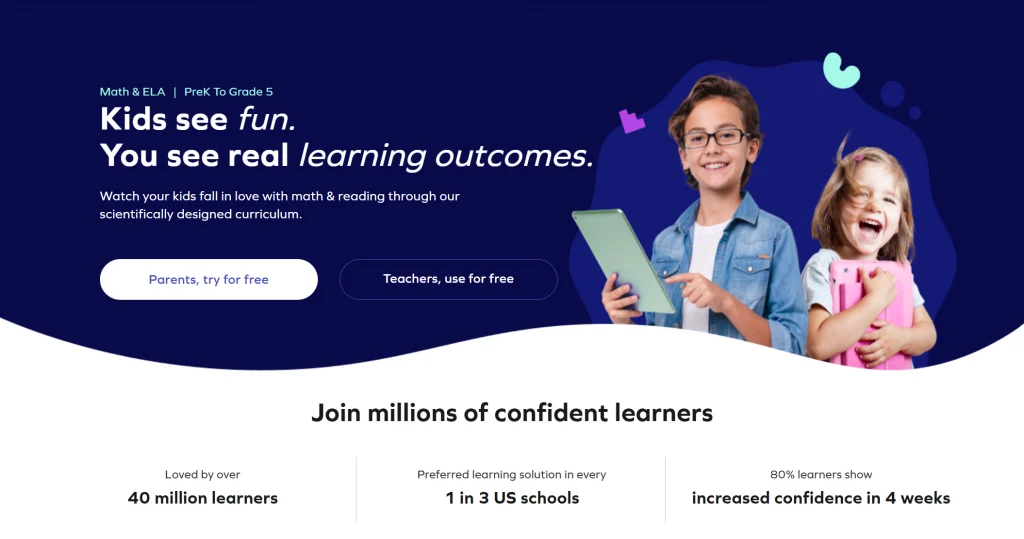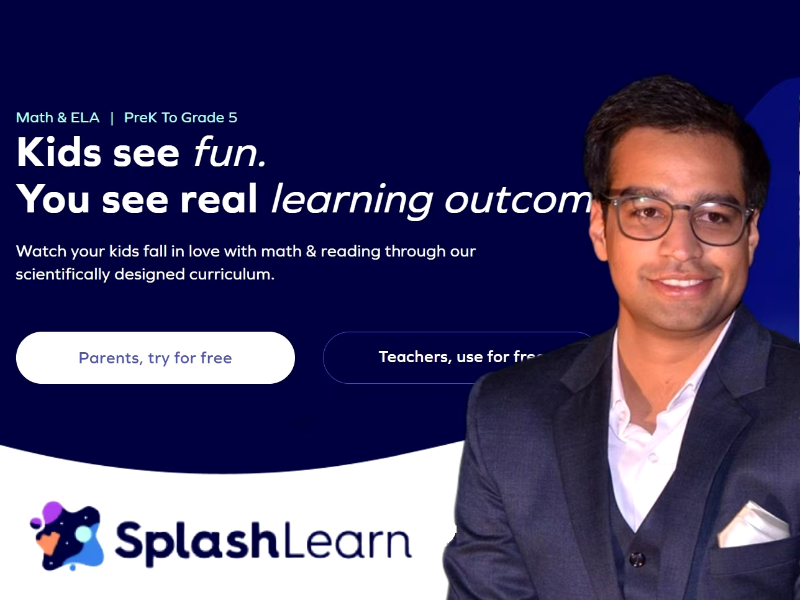- Sumit Bansal, a seasoned Technical Test Lead at SplashLearn, has over 8 years of experience in software testing, specialising in cross-platform education projects.
- He discusses the unique challenges of testing educational platforms across iOS, Android, and Web, emphasising the importance of consistent user experience.
- Bansal shares insights on the evolving role of QA in the EdTech sector, highlighting the shift towards a more collaborative and data-driven approach.
Sumit Bansal: A leader in software testing
Sumit Bansal is a prominent figure in the field of software testing, currently serving as the Technical Test Lead at SplashLearn, a leading online learning platform for children. With over eight years of experience, Bansal has built a solid reputation for his expertise in designing, developing, and implementing comprehensive test solutions across various platforms, including iOS, Android, and the web. His leadership in managing a team of seven quality assurance (QA) professionals has been instrumental in ensuring the readiness and reliability of SplashLearn’s educational products.
In addition to his technical acumen, Bansal is an ISTQB-certified professional and has been recognised as a LinkedIn Top Voice in software testing, a testament to his thought leadership in the field. His diverse skill set, which includes web QA, mobile QA, Application Programming Interface (API) testing, database testing, and Salesforce testing, has enabled him to tackle complex testing challenges in the rapidly evolving EdTech sector.
“In EdTech, quality assurance is not just about finding bugs—it’s about ensuring a seamless learning experience for every student, regardless of the device they use.”
Sumit Bansal
The evolution of EdTech and QA’s critical role
The EdTech industry has experienced significant growth, particularly with the rise of remote learning. Platforms like SplashLearn have become essential tools for educators and students alike, driving the demand for high-quality, reliable digital solutions. As more educational institutions and learners rely on these platforms, the expectations for QA professionals have increased dramatically.
In this context, QA has transitioned from being a gatekeeper to a collaborative partner in the development process. Bansal emphasises that early involvement of QA in product development is crucial for identifying potential issues before they escalate. This proactive approach is increasingly necessary as EdTech platforms integrate advanced technologies like AI and machine learning, which require sophisticated testing methodologies to ensure functionality and reliability.

Also read: Shaquille O’Neal Backs EdTech Startup Edsoma with Undisclosed Amount
Also read: Who is Denis Shafranik? Co-founder of Concentric
Ensuring consistency across platforms
When asked about the unique challenges of testing educational platforms across iOS, Android, and Web, Bansal highlights the importance of consistency in user experience. “Educational content must be accessible and functional on all devices, whether it’s an iPad, an Android phone, or a desktop browser,” he says. This requires extensive cross-platform testing to identify and address any platform-specific issues.
Bansal’s team employs rigorous performance testing, load testing, and real-user monitoring to ensure that the platform performs well under different network conditions and usage patterns. This is particularly important given that many users are young students who may not have the patience to deal with slow or buggy applications.
Navigating complex testing projects
Bansal recalls a particularly complex project involving the integration of a real-time multiplayer feature game. The challenge was to synchronise the game state across different devices in real-time while ensuring minimal latency and data integrity. To address this, Bansal’s team combined automated testing frameworks with manual exploratory testing. This approach allowed them to identify potential issues early and ensure that the servers could handle many concurrent users without compromising the user experience.
“With the rise of AI and machine learning in educational platforms, QA professionals will need to expand their skill sets to include testing intelligent algorithms and adaptive learning systems.”
Sumit Bansal
The future of QA in EdTech
Looking ahead, Bansal sees the role of QA in Educational Technology (EdTech) becoming even more integral as the industry continues to grow. He believes that QA professionals must expand their skill sets to include testing intelligent algorithms and adaptive learning systems. Additionally, the increasing emphasis on data privacy and security in the EdTech sector will require QA teams to work closely with security experts to ensure compliance with data protection regulations.
Strategies for aligning testing with business goals
Bansal underscores the importance of aligning testing processes with business goals and user expectations. His team employs a test-driven development (TDD) approach, writing tests based on business requirements before the code is developed. This ensures that the testing process is closely aligned with the desired outcomes of the product. Continuous integration and continuous delivery (CI/CD) pipelines also play a key role in maintaining high standards of quality while allowing for rapid deployment of new features.
Advice for aspiring QA professionals in EdTech
For those aspiring to build a career in QA within the EdTech industry, Bansal offers practical advice: “Develop a strong foundation in both manual and automated testing, stay curious and keep learning, and focus on user-centric testing.” He also emphasises the importance of collaboration and communication, noting that QA is not an isolated function but requires close collaboration with developers, product managers, and designers.
A personal insight
Bansal’s expertise in software testing shines through in the way he approaches the challenges of EdTech. His meticulous attention to detail is evident in his emphasis on ensuring that educational content is accessible and functional across all platforms. As he rightly noted, “Educational content must be accessible and functional whether a student is using an iPad, an Android phone, or a desktop browser. ”This focus on user experience, especially in an industry where the end-users are young learners, highlights his dedication to creating a seamless educational environment.
What particularly resonated with me was Bansal’s proactive approach to tackling complex testing scenarios. For instance, when discussing the integration of a real-time multiplayer feature, his strategy of combining automated and manual testing while fostering close collaboration within his team demonstrates not only his technical acumen but also his leadership qualities.
Throughout our correspondence, Bansal was prompt and thorough in his responses, which further reflects his professionalism and commitment. His thoughtful and comprehensive answers provided valuable insights into the evolving role of QA in EdTech. It’s clear that Bansal is deeply invested in his work, not just as a technical lead, but as someone who genuinely cares about the quality and effectiveness of the educational tools he helps to build.

